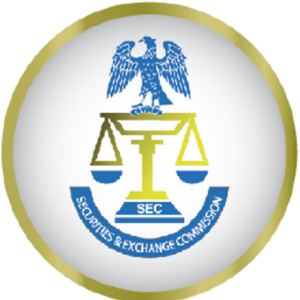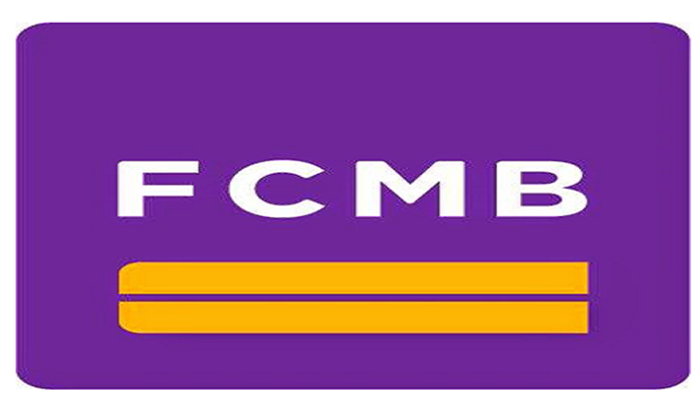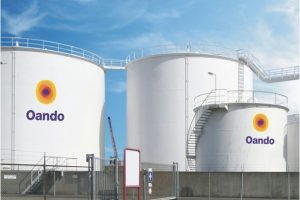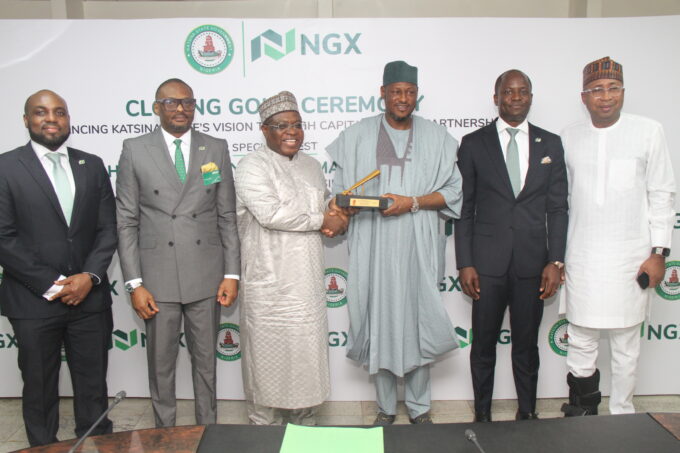For several weeks now the recent step by the Securities and Exchange Commission’s (SEC’s) regulatory to instill discipline in the nation’s capital market and, by so doing protect investors’ funds in the bourse, has continued to elicit cacophonous reactions frommany analysts and commentators, who see the regulator’s moves from diverse perspectives.
The debate, especially on the regulator’s sanctions on Oando Plc and its officials, has become so heightened that members of the public, who ordinarily should be properly enlightened on the matter, have become more confused about what the real issues in question than they were before the crisis in the oil marketing company came into the open.
Curiously, the confusions trailing the debate are more orchestrated by largely the poor understanding of some analysts of the roles the SEC is expected to play in promoting corporate governance in the capital market as well as ‘misinformation’ by some sanctioned officials of Oando Plc and their ‘agents’, who feel that changing the leadership ‘status quo’ in the company will adversely affect their interests.
Beyond the façade of the dust that appeared to have been raised through the debate on the actions taken by the SEC on ‘erring’ officials of Oando Plc in the public space in recent weeks, is the more fundamental issue of SEC’s mandate and how the commission has, over the years, exercised it in its sustained drive to ensure a market whose operations are guided by best corporate governance principles and global best practice standards.
A cursory appraisal of the provisions of the SEC’s enabling Act with specific reference to how the commission should act in the interest of investors showed that successive managements of the capital market regulatory institution, particularly the current Ms. Mary Uduk-led team, have pursued the commission’s mandate in a most unbiased manner, no matter whose ox may be gored.
For instance, when analysed within the context of the provisions ofSections 13(n), 45, 303 of the Investments and Securities Act (ISA) 2007 and Rule 598 of the SEC’s Rules and Regulations, which empower the commission to protect the integrity of the capital market against all forms of abuses by investigating and sanctioning persons who violate the provisions of the Act and the Rules and Regulations made pursuant thereto, the capital market regulatory institution has done well over the past few years.
Again, on the provisions of Section 310(1) of the same Act and Rule 599 (1) of the commission’s Rules and Regulations, which both empower the commission to set up the SEC Administrative Proceedings Committee (APC) to hear complaints on alleged violations of securities laws governing the market, the managements have consistently done this to protect the integrity of the Nigerian capital market and sustain investor’s confidence in its potential for returns on investment.
Similarly, Section 13 of the ISA gives the power to sanction erring individuals as provided under Section 13 (u) to the SEC management and this power includes to levy fees, penalties and administrative costs of proceedings or other charges on any person in relation to investments and securities business in Nigeria, in accordance with the provisions of the Act.
In addition, Rules 598 & 601 of the SEC Rules and Regulations, made pursuant to the Investment and Securities Act, also empowers the management of the Commission to summarily sanction any erring listed entity.
It is quite surprising that some ‘noon day’ analysts are rising up with ‘editorial arms’ to attack the commission for doing what it ought to do pursuant to the above infallible legal provisions. The SEC, having thoroughly looked into the financial records of Oando Plc based on auditors’ findings, took appropriate measures to sanitise the system in public interest as provided in its enabling Act.
Now, looking into the actions of the SEC over the years in its determination to ensure investor protection by sustaining market fairness and integrity reflect that the Oando Plc’s case is not an isolated or peculiar step taken to ‘witch hunt’ anybody for whatever reasons.
For example, pursuant to the provision Section 65(1) of the Investment and Securities Act, 2007, the SEC Rules and Regulations require all quoted companies to make quarterly filings with the Commission. Specifically, Rule 41(1) mandates listed companies to file their financials “not later than 30 days from the end of each quarter”, prepared in accordance with the International Financial Reporting Standard (IFRS).
Available records showed that the commission, in furtherance of its statutory mandate, has continued to sanction defaulting public companies for failing to comply with these regulatory requirements. These measures have led to a massive improvement in filing compliance by quoted companies significantly over the years.
Interestingly, this development has led to significant improvement in the access and quality of information about quoted companies now available to the investing public to make more informed investment decisions. As it were today, all categories of investors, namely retail, domestic, institutional and foreign, has been benefitting from this improved market behaviour.
Now, measuring the impact of the regulatory institution’s steps in promoting corporate governance and global best practice standards in nation’s capital market and by implication, attraction of investments into the market, showed that despite the depressive trends in the nation’s economy over the years, the market has remained buoyant contrary to many analysts’ predictions.
Yes, capitalization of the market may not have been deepened significantly due to a combination of militating factors in the macro economy but investor’s confidence in the market, particularly retail investors, has remained strong ever. Despite the whirlwinds in the global investment markets, the Nigerian bourse has continued to exhibit resilient capacity in terms of all performance assessment parameters.
To wit, from an all low N7.030 trillion Nigerian Stock Exchange (NSE) data in December 2009, the market data, through sound regulatory guidelines and corporate governance principles’ implementation by the regulatory authorities, has grown steadily toN13.909 trillion Second week of July 2019.
Beyond the statistical data are more fundamental signals that the SEC, through its oversight regulatory roles in the capital market, is transforming the NSE from a local bourse to an internationally recognized investment haven. This fact is well exemplified by the latest listing of MTN Nigeria and Airtel Nigeria shares in the market.
Expressing his board and management’s appreciation to the Nigerian authorities during the official listing of MTN Nigeria’s shares on the NSE on May 16 this year, the Chief Executive Officer of the company, Ferdi Moolman, said that it was a great pleasure for the management that the official listing, through introduction of MTN’s shares on the NSE took place that day.
Moolman said the telecommunications operated appreciated the continued support afforded it by the government, regulators and people of Nigeria to list on the bourse
He enthused: “In particular, I would like to thank the staff and management of MTN Nigeria who worked tirelessly to make this day possible. This is just the beginning, we still intend to pursue a future Public Offer giving more Nigerians greater access to the MTN opportunity.”
Similarly, MTN Group CFO, Ralph Mupita said: “As MTN Group we are very pleased that we are taking this first and important step towards increasing the local ownership of the company, and building the equity capital markets in Nigeria.”
Apart from the telecommunication entities, other corporate investors such as the Fintech companies are also moving in droves to see how they could add value to the capital market through diverse investment portfolios.
What all this portends is that the SEC, against all odds, has been improving the environment for investments in the Nigerian capital market through appropriate regulatory guidelines with the attendant multiplier effects on a broad spectrum of the nation’s economy.
This is a healthy development that requires all stakeholders’ support if Nigeria’s economy is to really grow sustainably, as long term investments are becoming increasingly crucial to government’s strive to close the existing infrastructure gap and make the economy more investor-friendly in the years ahead.














